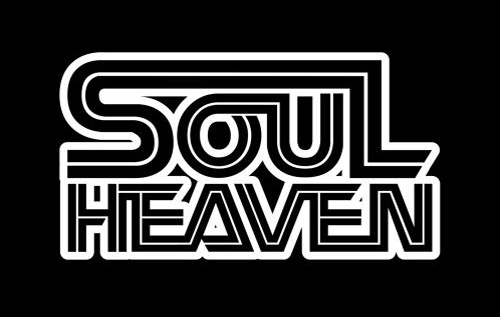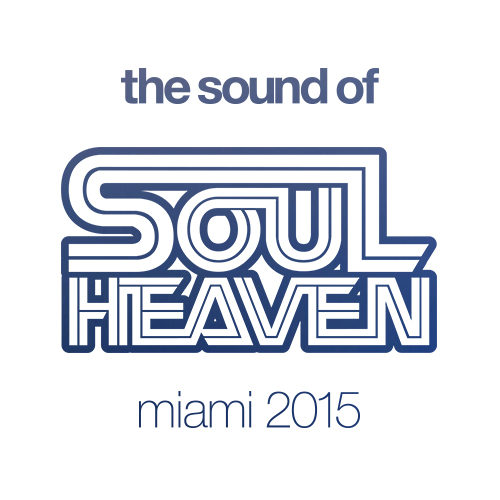One need only note the recent success of underground dance records by Seven Davis Jr (‘One’) and Terrence Parker (‘Open Up Your Spirit’) to confirm that a soul-house renaissance is well and truly under way. Such renaissance dovetails nicely into the global club community’s wider, resurgent interest in retro-house – a supremely general label for many of the house cuts released during the early and mid-Nineties; rich and fulsome productions aligning themselves to anything and everything soulful including disco, R&B and transatlantic soul.
Is it any wonder then that Soul Heaven is currently flying high? The long-standing soul-house label has been back under Defected’s guidance since late 2013 and, since then, delivered a string of impressive EPs and albums infused with warmth and drive in equal measure. In the coming weeks Soul Heaven will release a slick new compilation covering the best of its recent exploits (think releases by Miguel Migs and Cuebur), as well as contemporary goodies from Detroit Swindle, Soul Clap and Quentin Harris, and a handful of Nineties classics via the likes of Black Magic, Julien Jabre and Amira. And, yes, Davis Jr and Parker are also involved in case you’re wondering….

So where did the soulful house sound originate? Well, the genre’s origins pre-date those classic boom ‘n’ bump phases of the mid-Nineties by a number of years, taking us back to Chicago’s first, formative moments as electronic music mecca. Gathered below are five early tracks hugely instrumental in establishing the soulful house movement’s enduring dancefloor legacy today – and for tomorrow....
Ce Ce Rogers – ‘Someday’ [US, Atlantic]
It was James Brown who supposedly christened Kenneth Jesse Rogers III ‘Ce Ce’ after watching the 11-year-old sing Chubby Checker. From one soul legend to another – just over a decade later Ce Ce Rogers would achieve new soulful highs within house music and turbo-charge its rise and rise. In 1987, Cleveland-based Rogers (now a session singer for Melba Moore and Freddie Jackson) flew to Chicago to work alongside Marshall Jefferson. The fast-rising DJ-producer had penned a song, ‘Someday’, after watching the news one morning but it would sit around for a time because Jefferson couldn’t find the right vocalist to perform it. In due course, promoter friend Billy Prest asked Jefferson to write a song for Rogers, who was on his roster of singers. The demo of ‘Someday’ just happened to be lying around, so Jefferson offered that and the rest was history.
Rogers actually recorded ‘Someday’ three times in the end, unhappy with his earlier attempts. By now Atlantic had signed the track but Jefferson and Prest were to convince Rogers that his first, less contrived performance was the best – that was the version that would be pressed. ‘Someday’ was a monumental soul-house record, its distinctive, uplifting piano riffs, intricate, jazzy solos and Rogers’ weighty vocals sitting majestically atop layers of fluid, danceable percussion. But the song was more than just sweet house sound; it was about the warming ideal of ‘one family’ in a weary late 20th century world beset by wars, drug crime, racial segregation and social injustice. Never had the community spirit of the dancefloor felt so important.
‘Someday’ was a hugely successful release, combining strong commercial performance with ecstatic critical reception. To date, the song has sold millions of units around the world. And Mixmag currently has it ranked at number three in its 100 Greatest Singles Of All Time list. ‘Someday’’s sustained cultural impact has been further bolstered by its integration (samples or otherwise) into several subsequent dance music productions across everything from jungle (Urban Shakedown) and rave (Liquid) to drum & bass (Danny Byrd) and deep 4-4 (KiNK). It is soul-house of the most influential, most transformative kind.
Turntable Orchestra – ‘You’re Gonna Miss Me’ [UK, Republic]
As the Eighties progressed so other seismic American soul-house licks arrived, notably those by Blaze (‘If You Should Need A Friend’, 1987), Ten City (‘Devotion’, 1987), Raze (‘Break For Love’, 1987) and Joe Smooth (‘Promised Land’, 1988). The UK’s own fledgling, equally significant dance scene was starting to sit up and take notice. Republic, Dave ‘Joey Negro’ Lee’s first record label, played a vital role in terms of licensing and releasing soulful house and garage music in the UK (and across Europe). Turntable Orchestra’s ‘You’re Gonna Miss Me’ was the label’s debut in 1988, originally out a few months earlier on cult New Jersey imprint Music Village. Produced by Hippie Torales (a founding resident at Club Zanzibar), it fired a pert house b-line beneath melodic piano stabs, snatches of horn, guitar and vibraphone, and a smooth male soul vocal.
The resultant engaging dance groove instantly enriched British dancefloors, leading to similarly hued Republic releases by Phase II (‘Reachin’’, 1988), Arnold Jarvis (‘Take Some Time Out’, 1989), Blaze (‘Can’t Win For Losin’’, 1988) and Raven Maize (Lee’s own triumphal disco-sampling masterpiece ‘Forever Together’, 1989). The label quickly earned its reputation as one of the UK’s first and most influential soulful house labels, expediting the genre’s growth beyond America.
Mr Fingers – ‘Mystery Of Love’ [US, Alleviated Records]
The success of Chicago DJ Jesse Saunders’ spaced-out synth ‘n’ bass track ‘On And On’ in 1984 – often viewed as the very first house track – prompted other Chi-Town spinners to dabble with electronic instruments and the disco licks they already loved. However it was city dweller Larry Heard who fully restored soulful flow to house music’s initial wave of robotic futurism. As alias Mr Fingers, Heard built atmosphere and intensity through soulful vocals and extended instrumental melodies rather than beat. His elegant 4-4, however, added powerful framing to lush productions such as 1985’s mesmeric ‘Mystery Of Love’. Subsequently released as Fingers Inc with added Robert Owens vocals, this Heard-penned song plumbed soulful depths on house floors hitherto untouched. It was a dizzying, near spiritual evocation of mood and emotion, and about to catalyse deeper and more soulful sub-strands of Chicago’s emergent dance revolution.
Heard honed his formula even more successfully a year later with the all-time classic ‘Can You Feel It?’ (and honed it again with 1989’s heart-tugging gem ‘What About This Love?’) whilst Joe Louis dropped ‘The Love Of My Own’ and Jamie Principle and Frankie Knuckles colluded on ‘Your Love’. All three slates, released in 1986, found creative ways to meld black box punch and soulful richness, the latter another soon-to-be electronic anthem. The embryonic house scene was making an increasingly powerful human connection.
Satoshi Tomiie – ‘Tears’ [UK, FFRR]
Tokyo born-and-bred Tomiie studied jazz and classical piano from a young age before developing an interest in electronics and keyboards, and then, as the first ripples of Chicago’s house revolution hit Japanese shores, DJing. He met Frankie Knuckles when both played at a major cosmetics function in Japan, the encounter prompting a flight to Knuckles’ New York base to share his demo of ‘Tears’. Studio collaboration during the pre-internet age was difficult, and such was the distance between both artists that ‘Tears’ was mostly finalised with them apart. Tomiie, a university student still living with his parents, produced the instrumental part of the song in his bedroom and recorded it to ‘two-inch’ tape. Knuckles loved it.
Despite the pair’s early language barrier Tomiie made it clear he wanted to add a Roberts Owens vocal – he was a major fan of Owens’ work with Larry Heard. “Nothing was easy but it was not a bad start for sure!” Tomiie later recalled. “I was just making [the] track to make music, not to make history.” But, with Knuckles, he achieved both. ‘Tears’, finally released via FFRR in 1989, was an aching torch song for the quick-maturing clubland generation. Its epic mix of groove and emotion reflected a new level of polish and sophistication too. Here was soulful house music on its biggest stage yet; house music transcending all boundaries and, with the Nineties directly ahead, ready to usher in a golden era of soul, disco and vocal-driven 4-4 productions.
Michael Watford – ‘Holdin’ On’ [US, Atlantic]
‘Holdin’ On’, the debut single from New Jersey-raised dance singer Michael Watford, came right at the start of soulful house’s early to mid-Nineties heyday. It was co-produced by Roger Sanchez and talented studio duo Smack and released via Atlantic Records in 1991. Watford’s distinctive deep, wailing vocals complimented a rich, bass-heavy groove layered with atmospheric synths and jazzy vibes, and in turn secured the song’s classic status among underground purists. ‘Holdin’ On’ was to become a cherished anthem at revered New York club night Shelter, regularly spun by residents Timmy Regisford and Merlin Bob. Pedigree deep house artist Ron Trent once recounted his first visit to Shelter when the track was being played: “Watching the dancer act out each vibration of the song and the sound system acting as an ethereal machine. A classic! This song is the purest example of what soulful dance floor music is about.”
Watford would follow ‘Holdin’ On’ with bigger, crossover hits such as ‘So Into You’ (1994); the wider house scene would follow it with further soulful Nineties epics including Barbara Tucker’s MAW-produced ‘Beautiful People’, Urban Blues Project’s ‘Deliver Me’ (featuring Michael Proctor) and Kerri Chandler Presents Arnold Jarvis’ ‘Inspiration’.
The Sound of Soul Heaven Miami 2015 is out 01 March (Digital) on Soul Heaven - order from iTunes




